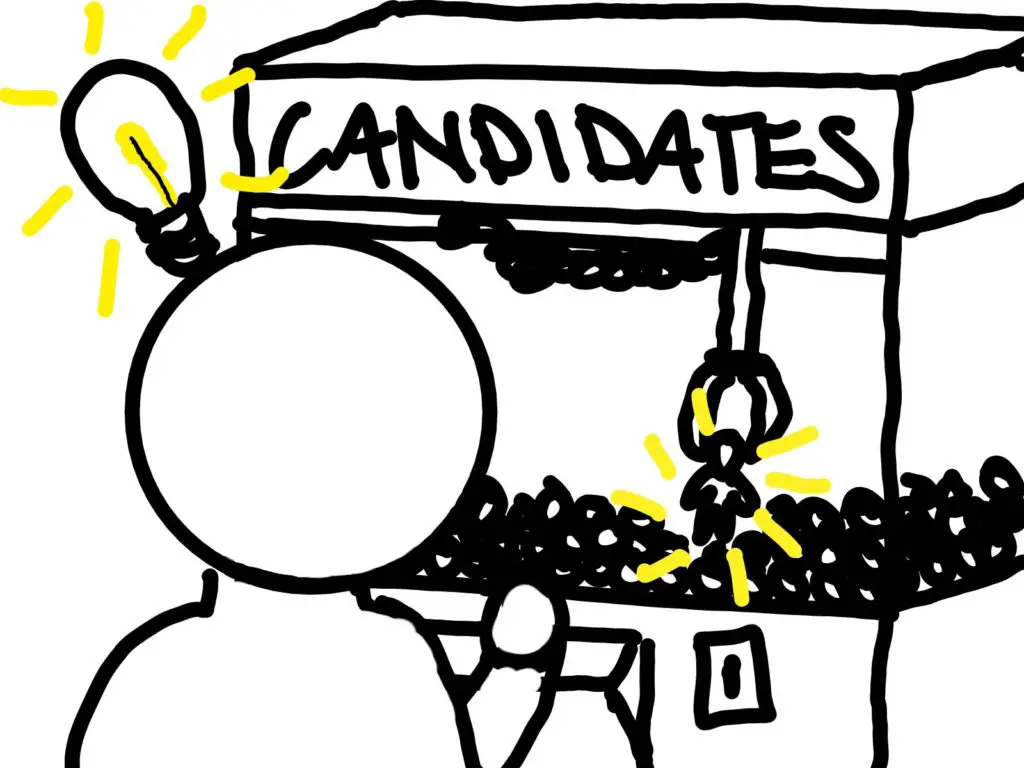Welcome to the fourth installment in Getting Started, a series of articles intended to guide you through the beginnings of your professional career, and set you up for a lifetime of success. As a 19 year old, you hopefully have already begun your employment journey, and amassed at least a year or two of on-and-off work experience. As a teen you may have held a summer job, or worked a part time job around your activity and school hours to make some extra money.
Now, you are reaching a turning point in your professional life. Maybe you are becoming a college student, or already looking for a permanent career field to jump into with just a high school diploma. Whichever path you choose, we are here to help you build the necessary skills to become a successful employee, and make a decent amount of extra cash in the process. This particular article is divided into two separate sections, but both contain valuable career tips for all 19 year olds, so we recommend that you read the whole thing.
Professional Tips for Non-College Students
College is not the path for everyone, and nor should every young person be pressured into going to college if they do not want to. There are plenty of job opportunities for a 19 year old without a bachelor’s degree, but youth employment at this stage is about looking towards the future, and laying the foundations for a solid career down the road.
Good paying jobs for 19 year olds can be hard to come by, and as a young worker you may not have all of the qualifications and work experience that a potential employer can find in older workers. However, even an entry level job at the right place and time can lead you to climb the ladder quickly, and help you make more than minimum wage within a couple months- a crucial point if you are looking to become independent in the near future.

Luckily for you, you’ve already overcome one of the most significant roadblocks to teen employment- the age requirement. The highest minimum age for almost any job is 18, and most 18 year olds are still busy with high school, so you definitely have a leg up on those more complex entry level job listings you find online. If you are not currently employed, targeting these kinds of positions can be a good starting point- they may not require much work experience, but are higher up than most teen jobs and provide opportunities for professional education and advancement.
Great Job Opportunities for Working 19 Year Olds
Customer Service: Whether it be at a store, restaurant, or call center, a job in customer service is an incredible opportunity to build professional skills and give yourself a shot at advancement in the near future. In retail, such as a department store or grocery store, customer service positions entail lots of problem solving and customer communication, both of which are invaluable skills for a young worker to have in almost any field. In some cases, these positions also have a management aspect, requiring you to supervise other employees and manage scheduling for your department. In these customer service positions you are entrusted with many responsibilities, giving you lots of material to work with when creating your resume in the future. If you do an excellent job in one of these positions, you may even be considered for higher level management within your company, as many such businesses pride themselves on promoting from within.
Administrative Assistant: Working as an assistant or secretary at any number of businesses can be another excellent opportunity to accumulate professional skills and look for advancement through your employer. Oftentimes these positions do not require a college degree, meaning a hardworking 19 year old such as yourself can get the job by showing dedication and a likeable personality. These positions usually do not require a complex skillset, but are very dependent on your ability to form solid relationships with your coworkers and superiors in the office. By impressing your employer with these personal skills, and your ability to manage time efficiently, you may be considered for promotion to higher levels, depending on the type of company you are working for. Even if this is not the case, during your next job search any other potential employer will be sure to appreciate the skills you’ve picked up at a job like this.
Sales Associate: Another extremely useful position you should be able to obtain with just a high school diploma is that of a sales associate. Like customer service, sales positions can take a variety of forms, and often the two go hand-in-hand. Retail sales is an easier field to get into, but generally comes with a lower median salary than sales positions with major businesses. More money is always good, but sales positions at all levels will bring you the skills and experience needed to move up in the professional world, and wow potential employers down the road.
For a more comprehensive list of good job opportunities for older teenagers, check out the 18 Year Olds installment of Getting Started!
Spinning Entry Level Jobs on A Resume
As you begin to move up in the working world, the job opportunities you participated in as a teenager will be vital information on your resume for any potential employer to read. However, you will be competing with dozens of candidates in the exact same position as you, so the way that you present that work experience is essential to making you stand out from the crowd.

Maybe the jobs that you had in high school were just a way to make some extra cash at the time, but as you have seen throughout this article and the Getting Started series, every job is about more than just the money. Even if you weren’t thinking about it at the time, those jobs that you held as a teenager provided you with experiences and skills that are vital to your professional career, and that future employers would die for.
The key to including these basic jobs on your resume is highlighting the skills you learned, and the responsibilities your employer trusted you with. You may have been a cashier at a fast food restaurant, but did you learn how to deal with angry customers? Were you trained on Point of Sale (POS) systems? You may have raked leaves for a landscaping company, but did you learn time management and adapting to weather conditions? Did you open or close the store you worked at, or handle large financial transactions?
Even the most mundane, seemingly useless jobs teach you some transferable skill- it is simply a matter of framing it in a way that is appealing to the hiring manager reading your resume. All of those little gigs you did for extra money as a teenager left some lasting impact on your professional life, and all experience is valuable, even if you cannot see it at first.
Professional Tips for College Students
College is a new and exciting time in your life, and one that comes with a lot more responsibility for balancing your own agenda. Your school day looks much different than it did in high school, and much more of your work must be done on your own time- meaning time management and self-control are vital to your success academically, socially, and professionally. Gone are the days when you could scroll social media in class, do a bit of homework, and call it a day. Your days are now action-packed, and fitting a part time job in the mix is no small feat.
Whether you’re looking for a two-year program, a bachelor’s degree, or down the road to graduate school, the key to a successful career after college is not only the classes you take, but the other opportunities you take advantage of while in school. Internships, projects, clubs, jobs, and other extracurriculars are amazing sources for developing professional skills and networking, to set you up for a great career the moment you receive your diploma.
Opportunities for the Hardworking Student
The Holy Grail of collegiate opportunities is a paid internship. As a first year student, it is highly unlikely that you’ll stumble into one of these, but be sure to keep your eye out for such opportunities along your academic journey. They give you all the educational benefits of an internship, while allowing you to make actual money at the same time- and potentially give you a path to employment post-graduation.
In your current situation, however, you have a variety of options to choose from, depending on what your goals and financial positions are. If you have a significant amount of financial aid, or won’t have to worry too much about debt once you graduate, taking full advantage of the unpaid internships and opportunities offered at your school is a great route to take. Business clubs can offer you a chance to work with real life companies on real or simulated projects, giving you professional experiences while allowing you to collaborate with your peers.

If you would like to make some extra cash while at school, for pizza or student loans down the road, there are some good options for you that will make you a decent amount of money and allow you to be flexible around your school day. Your best bet is finding some sort of online job that you can do from the comfort of your own room, and on your own time. Remote jobs can come in a variety of forms, and there are nearly unlimited opportunities out there on the internet. Freelance writing for websites is an option, as a college student like yourself is likely a fairly prolific writer, and should be able to find work there easily. A growing form of remote work for teenagers is working on a survey site, filling out questionnaires on your own schedule and getting paid to do so. The survey site field can be risky, however, as not all of the sites are established enough to guarantee that you will be paid for your work. If you are artistically inclined, you may be able to find an online job as a graphic designer or commission artist during your free time.
Balancing School, Work, and Your Social Life
The biggest challenge of working while in college is balancing all of your commitments, and ensuring that you have enough energy to dedicate to each of them. Work, classes, sports, clubs, musical groups, and your friends all take up time and effort, and ignoring any one of them will make your college experience less worthwhile. But how do you strike that balance, when it seems like you have too many commitments and not nearly enough time?
The seemingly obvious big tip here is that school always comes first. Doing well in your classes is your best shot at future success, but the late payoff often causes students to overlook it in the short term. If you are ever faced with an inescapable situation that forces you to choose between schoolwork and something else, pick school almost every time- even though you will likely not want to.
The second big tip is to budget your down time. Many of us love to spend hours laying around doing absolutely nothing but sleeping or scrolling through social media. There is absolutely nothing wrong with doing nothing- the key is limiting that time throughout your day. Give yourself an hour before you go to bed, or breaks throughout the day- if you have allotted time to be lazy, your laziness is much less likely to cut into the time you should be working.
It may be tempting to dedicate all of your time to working, bouncing back and forth between projects, assignments, and jobs without stopping to take a breath- it sometimes may seem like that is the only way to be successful in today’s world. However, it is essential that you make time for friends, family, and fun. If you put your head down and work hard during the week, don’t be afraid to take a break over the weekend, hang out with some friends, go to a football game. Sure, these things probably won’t advance your career at all, but they’ll help decrease your stress, and make your life more enjoyable overall.
No matter where you are in your professional journey, being a 19 year old is a great time to think about your future, and build skills and relationships that will become invaluable to you down the road. If you have not read the earlier articles in our Getting Started series, we highly encourage you to check them out, as they contain advice that will still help you today. And as you grow older and continue down your professional path, don’t forget to check back for future Getting Started installments to help you stay on track for a successful career!